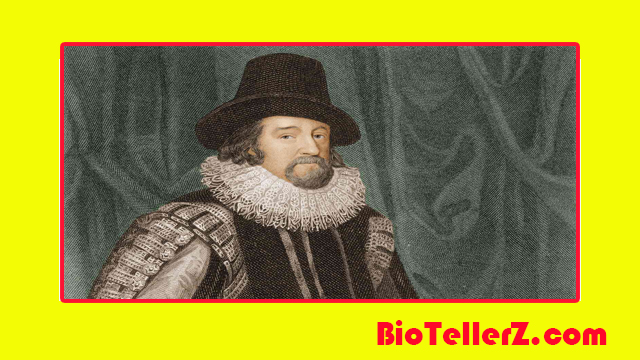
Francis Bacon
Young Age
Political Aspirations
In 1576, Bacon was admitted as an “ancient” (senior governor) by one of London’s four Inns of Court, which served as institutions for legal education. After relocating there in 1579 and passing the bar exam in 1582, he worked his way up to positions like reader (lecturer at the Inn), bencher (senior member of the Inn), queen’s counsel extraordinary (from 1603, king’s counsel), solicitor general, and attorney general, among others. He did have political and philosophical aspirations, though, despite his successful legal career.
The tract “Temporis Partus Maximus,” which is also known as “The Greatest Part of Time,” that Bacon worked on in 1582 has not been preserved. He was chosen in 1584 to represent Melcombe Regis in Dorset. Later, he won elections to represent Cambridge University, Taunton, Liverpool, the County of Middlesex, Southampton, and Ipswich. His political preferences were made clear in a “Letter of Advice” to the queen and An Advertisement Touching the Controversies of the Church of England, both of which were published in 1589. His political potential was fairly obvious from his maturity and propensity for compromise. His political aspirations were damaged when he refused to comply with the government’s increased demand for subsidies to help cover the costs of the war against Spain in 1593. Bacon was in disgrace during a number of critical years when there were chances for legal advancement, which offended Elizabeth.
Connection to Essex
However, Robert Devereux, the young earl of Essex, who was adored by the queen but still in some disgrace as a result of his unauthorized marriage to the widow of Sir Philip Sidney, had already been introduced to Bacon before July 1591. The earl was the “best instrument to do good to the State,” according to Bacon, who offered Essex the courteous advice of a seasoned, wiser, and more shrewd man. “. When the position of attorney general became vacant, Essex enthusiastically but ineffectively supported Bacon’s legal argument. Ineffective suggestions were also made by Essex to give Bacon high office.
James Government
After Elizabeth died in 1603, Bacon used his letter-writing abilities to establish himself and find a place for his skills in James I’s administration. He made the case that he had a lot to offer the new king by mentioning his involvement in Irish affairs, the union of the kingdoms, and the pacification of the church.
Lose Authority
Bacon must have seemed untouchable by 1621. Although he was witty and had a dry sense of humor, his monarch preferred him more for his usefulness and loyalty than for his charm. Bacon was generous with public funds (he once paid for an entire court masque alone), gracious with his wealth, and self-assured in his wealth. The Novum Organum, which he wrote, also piqued the interest of academics from other nations. Bacon, however, faced opposition.
He clashed with George Villiers when he tried to thwart the marriage of Coke’s daughter and Villiers’s younger brother in 1618. Then, in 1621, he was the head of a grievance committee when he was accused of accepting two bribes. Because Bacon was careless with his money’s inflow and outflow and was unaware of any vulnerability, the shock appears to have been compounded by the anger of two men whose cases were decided against them despite gifts they had given with the intention of bribing the judge.
He explained that he was genuinely ill and not being cowardly in asking for more time to face the charges because he was sick when he was hit. The House of Lords was collecting additional complaints at the same time. Although Bacon acknowledged accepting gifts, he denied that this had ever had an impact on his judgment. He made notes about the cases and asked the king for an audience, but was denied.
Related Posts
Donald Trump – Best Guide in 2023
